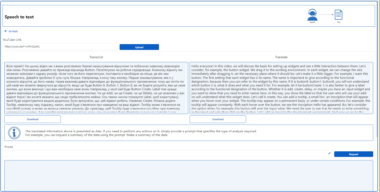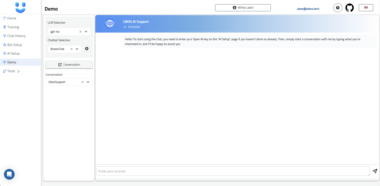Plex MCP Server
This is a Python-based MCP server that integrates with the Plex Media Server API to search for movies and manage playlists. It uses the PlexAPI library for seamless interaction with your Plex server.
Setup
Prerequisites
- Python 3.8 or higher
uvpackage manager- A Plex Media Server with API access
Installation
Installing via Smithery
To install Plex Media Server Integration for Claude Desktop automatically via Smithery:
npx -y @smithery/cli install @djbriane/plex-mcp --client claude
Installing Manually
Clone this repository:
git clone <repository-url> cd plex-mcpInstall dependencies with
uv:uv venv source .venv/bin/activate uv syncConfigure environment variables for your Plex server:
PLEX_TOKEN: Your Plex authentication tokenPLEX_SERVER_URL: Your Plex server URL (e.g., http://192.168.1.100:32400)
Finding Your Plex Token
You can find your Plex token in this way:
- Sign in to Plex Web App
- Open Developer Tools
- In Console tab, paste and run:
window.localStorage.getItem('myPlexAccessToken')
Usage with Claude
Add the following configuration to your Claude app:
{
"mcpServers": {
"plex": {
"command": "uv",
"args": [
"--directory",
"FULL_PATH_TO_PROJECT/plex-mcp",
"run",
"plex-mcp.py"
],
"env": {
"PLEX_TOKEN": "YOUR_PLEX_TOKEN",
"PLEX_SERVER_URL": "YOUR_PLEX_SERVER_URL"
}
}
}
}
Available Commands
The Plex MCP server exposes these commands:
| Command | Description | OpenAPI Reference |
|---|---|---|
search_movies | Search for movies in your library by title | /library/sections/{sectionKey}/search |
get_movie_details | Get detailed information about a specific movie | /library/metadata/{ratingKey} |
get_movie_genres | Get the genres for a specific movie | /library/sections/{sectionKey}/genre |
list_playlists | List all playlists on your Plex server | /playlists |
get_playlist_items | Get the items in a specific playlist | /playlists/{playlistID}/items |
create_playlist | Create a new playlist with specified movies | /playlists |
delete_playlist | Delete a playlist from your Plex server | /playlists/{playlistID} |
add_to_playlist | Add a movie to an existing playlist | /playlists/{playlistID}/items |
recent_movies | Get recently added movies from your library | /library/recentlyAdded |
Running Tests
This project includes both unit tests and integration tests. Use the following instructions to run each type of test:
Unit Tests
Unit tests use dummy data to verify the functionality of each module without requiring a live Plex server.
To run all unit tests:
uv run pytest
Integration Tests
Integration tests run against a live Plex server using environment variables defined in a .env file. First, create a .env file in your project root with your Plex configuration:
PLEX_SERVER_URL=https://your-plex-server-url:32400
PLEX_TOKEN=yourPlexTokenHere
Integration tests are marked with the integration marker. To run only the integration tests:
uv run pytest -m integration
If you are experiencing connection issues to your Plex server try running the integration tests to help troubleshoot.
Code Style and Conventions
Module Structure:
Use clear section headers for imports, logging setup, utility functions, class definitions, global helpers, tool methods, and main execution (guarded byif __name__ == "__main__":).Naming:
Use CamelCase for classes and lower_snake_case for functions, variables, and fixtures. In tests, list built-in fixtures (e.g.monkeypatch) before custom ones.Documentation & Comments:
Include a concise docstring for every module, class, and function, with in-line comments for complex logic.Error Handling & Logging:
Use Python’sloggingmodule with consistent error messages (prefix “ERROR:”) and explicit exception handling.Asynchronous Patterns:
Define I/O-bound functions as async and useasyncio.to_thread()to handle blocking operations.
Plex Media Server Integration
Project Details
- djbriane/plex-mcp
- Last Updated: 4/16/2025
Recomended MCP Servers
MCP Server for AI automation of the PlayCanvas Editor

MCP server to provide Jira Tickets information to AI coding agents like Cursor
An MCP server for retrieving papers from arXiv based on keywords

Official MCP server for Tripo


MCP server for Practera
基于Python的开源量化交易平台开发框架
A Model Context Protocol (MCP) server for interacting with fal.ai models and services.
Enables AI agents to access and interact with Clover merchant data, inventory, and orders through a secure OAuth-authenticated...
 From vibe coding to vibe deployment. UBOS MCP turns ideas into infra with one message.
From vibe coding to vibe deployment. UBOS MCP turns ideas into infra with one message.





